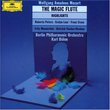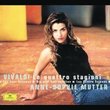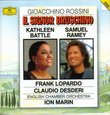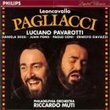| All Artists: Richard [Classical] Wagner, Issay Dobroven, Georges Sebastian, Wilhelm Furtwängler, Elisabeth Höngen, Philharmonia Orchestra of London, Gerald Moore, Kirsten Flagstad, Set Svanholm Title: Wagner: Wesendonck-Lieder; Arias Members Wishing: 0 Total Copies: 0 Label: EMI Classics Release Date: 1/25/2005 Genres: Pop, Classical Styles: Vocal Pop, Opera & Classical Vocal, Historical Periods, Modern, 20th, & 21st Century Number of Discs: 1 SwapaCD Credits: 1 UPC: 724356295728 |
Search - Richard [Classical] Wagner, Issay Dobroven, Georges Sebastian :: Wagner: Wesendonck-Lieder; Arias
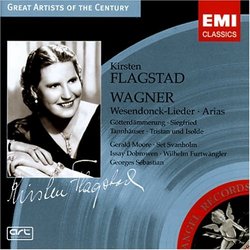 | Richard [Classical] Wagner, Issay Dobroven, Georges Sebastian Wagner: Wesendonck-Lieder; Arias Genres: Pop, Classical
From about 1935, when she made her New York debut, to 1955, when she retired, the great Norwegian soprano Kirsten Flagstad (1895-1962) was the world's pre-eminent Wagnerian heroine. These excerpts from her signature roles,... more » |
Larger Image |
CD DetailsSynopsis
Amazon.com From about 1935, when she made her New York debut, to 1955, when she retired, the great Norwegian soprano Kirsten Flagstad (1895-1962) was the world's pre-eminent Wagnerian heroine. These excerpts from her signature roles, reissued from recordings of 1948 and 1951, present her at her peak. Her voice is singularly beautiful: absolutely even over a huge range, dark, warm, with a narrow, perfectly focused vibrato, a floating pianissimo, a glorious top, and a sense of endless reserves of power. Musically and dramatically, she never loses her noble restraint. What was sometimes called her cool detachment comes across here as austere and inward. Even in the Wesendonck Songs, which, set to what may be the worst poems in the German language, contain some of Wagner's most sensuous effusions, she avoids sentimentality and excess. Eisabeth's Prayer from Tannhäuser is devout, simple, deeply felt; the final duet from Siegfried rises from pent-up apprehension to unbridled rapture. In Isolde's first-act duet with Brangäne she goes from anguished bitterness to vengeful fury with utmost intensity; in the final scene, hallucinatory languor gradually turns into visionary ecstasy. Brünnhilde's Immolation from Götterdämmerung becomes an entire opera, progressing from accusation, lament, and resignation to triumphant resolve. The orchestra is excellent throughout, but in this scene, the playing under Wilhelm Furtwängler's leadership is positively inspired. --Edith Eisler Similar CDs
Similarly Requested CDs |
CD ReviewsA KEEPSAKE DAVID BRYSON | Glossop Derbyshire England | 08/10/2005 (5 out of 5 stars) "This is what Wagnerian style is all about. Younger music-lovers in particular are recommended these excerpts from the work of a true legend of the Wagner stage, and those of us who are at the nostalgia stage will surely welcome this reminder of what this great singer amounted to at her best. There is one comparative rarity here, the five Wesendonck songs in their piano version, Flagstad being accompanied by the incomparable Gerald Moore. These songs are hardly the greatest Wagner, but they are a very interesting milestone in the progress of his style. Wolf surely must have studied them closely, and in terms of Wagner's own development they seem to me to mark an experiment in escaping from the operatic vocal style, feeling their way towards his true music-dramas of which the Rhinegold is the first. The poems themselves don't seem to me to amount to much - the sentiments are so universally unspecific that they are about as near nothing as makes no difference. Nevertheless gushing romantic emotion was something Wagner himself went in for, and I expect that that was what attracted him to these nondescript lyrics. It is also rather an unusual experience to hear Flagstad's voice at close quarters in a chamber context, but I felt no desire to linger over this part of the disc - what I was really after was the later items. Elisabeth's prayer from Tannhaeuser is of course very well done, but the real thrills come with the music-dramas, when that mighty voice finally lets rip. In Bruennhilde's duet with Siegfried from Act III Flagstad is partnered by Svanholm. I would not dispute that Svanholm's voice has something of an edge to it, but he could act and the whole love scene has colossal power and conviction about it. Not only do the singers perform superbly, the composer gives them every assistance, whatever they used to tell us about Wagner's vocal style. The voices are allowed to operate in their most natural and strongest registers, venturing high only now and again. I have heard one famous tenor quoted as saying that he could sing Siegfried several times for every once he would dare take on the far shorter role of Otello. With the immolation scene from Goetterdaemmerung I thought I noticed an improvement in the recorded sound. I quite definitely noticed something special about the orchestral work, and it was no surprise when I glanced at the liner and saw that in this number the Philharmonia was under the baton of Fuertwaengler. Superlatives fail me here. In general I'm not in favour of hacking chunks out of Wagner's music-dramas, but Goetterdaemmerung seems to me much weaker than the other Ring dramas and I would sooner have that great final scene than all the rest of it put together, particularly in a performance like this. So it goes with the Tristan selections too. Isolde's duet with Brangaene (very well done by Elisabeth Hoengen) is another treat until it's brought to an abrupt and ugly end, but the Liebestod, mercifully heard on its own and not in an unnatural union with the prelude, touches heights of sublimity to match the account of the end of the Ring. This is not Flagstad's famous partnership with Fuertwaengler this time but with Dobrowen. He rises to the challenge very well indeed, and between the music itself and the singing I hardly noticed that it was not the great maestro himself. I'm still reeling from the experience, sufficiently to be able to ignore one of the most fatuous liner-essays I have ever seen in my life. The writer contrives to manufacture a song and dance of his own about a television programme in which a totally fictional character comments that an equally fictional soprano (called Gwladys Probert I recall) surpasses Flagstad. This does not surprise me in the least, as the reference is to a hypothetical and non-existent person who purportedly surpassed Flagstad, something that I suppose could be imagined in fiction. The rest of the liner gives us some superficial information about Flagstad but tells us nothing at all about the music. What would have been a lot more useful would have been the dates of the performances. Full texts are however provided with English and French translations. The recorded quality is slightly variable, never outstanding but never downright bad either, the poorest quality being in the Wesendonck songs. Never mind all that. This is what Wagnerian style is all about." Wagner Scenes and Unseens Akimon Azuki | 09/27/2005 (5 out of 5 stars) "You can get this CD just for Mild und Leise- that's exactly what I did before I considered any full scale versions of Tristan und Isolde. But the Wesendonck-Lieder are interesting enough by themselves, though the text may be expendable; up close and personal in the studio, Flagstad still sounds great. And all Wagner opera scenes included here are a good selection that plays to her strengths. Two tracks in particular, the duet from Siegfried and the Immolation Scene, are fascinating, even when plucked out of the opera context. And you can always simply luxuriate in the sound of Flagstad's voice. It's like an ocean wave of pure sound that carries everything. Her interpretations are restrained on the surface, yet sensual and moving. And then, there's Mild und Leise. With all the recordings available, and now that it has its own website [...], you can listen to so many singers try on Isolde role for size, but I still feel it's one Flagstad princess to rule them all. It's not only that her voice is so perfect- even here, in this hazy, hissy, muted old recording- which is an added attraction, almost, because it gives the music the otherworldly feel of a transmission from some other planet, outer space, or where it is that Tristan and Isolde now reside. I think Flagstad captures that certain form of rapture better than any other Wagnerian soprano I know. I like many of the current Isoldes, Waltraud Meier and Nina Stemme are great, but there's something about the languid, dreamy way Flagstad wraps her voice around the music, gazing into that vision before her, unseen to us, that will stick around in any recording medium, as it has for the last fifty years." Unforgettable Kirsten Flagstad, the Wagner Prototype S. Meimaris | Salamis, Greece | 05/01/2009 (5 out of 5 stars) "These Arias by famous soprano Kirsten Flagstad give us a taste of her unique voice talent, one that has stamped indelibly the Wagner repertory.
It is an opportunity to listen to her in parts in which she excelled, like "Siegfried" and "Tanhauser" and of course "Tristan und Isolde" without having to buy the complete albums. A once in a lifetime experience! Great! Amazing! " |

 Track Listings (10) - Disc #1
Track Listings (10) - Disc #1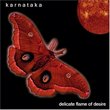
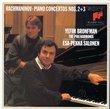
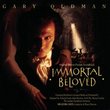
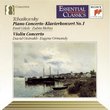
![Delibes - Lakmé / Mesplé, Burles, Soyer, Millet, Opéra-Comique, Lombard [highlights]](https://nationalbookswap.com/cd//m/63/8663/6008663.jpg)

